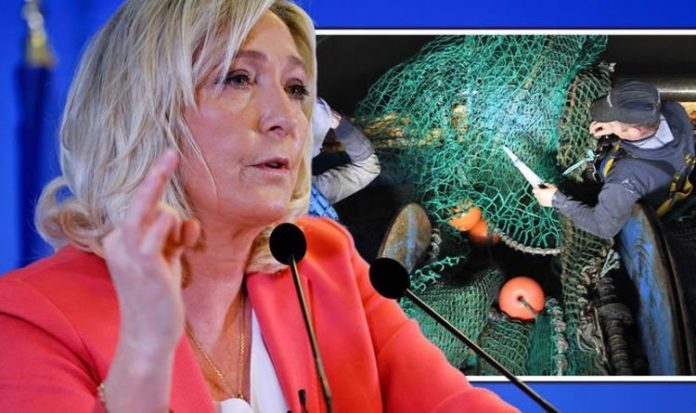At the beginning of February, the EU told British fishermen they faced being indefinitely banned from exporting live mussels, oysters, clams, cockles and scallops from UK waters because it is now a third country. Countries which don’t meet the EU’s standards have to purify their catch domestically before exporting. The process adds significant costs and delays and is particularly impacting fishermen in Wales and the south west of England.
The UK is now said to be considering ending a series of post-Brexit continuity agreements it has with Brussels in retaliation, which could restrict imports of European mineral water and seed potatoes.
A Downing Street source said: “There is thought being given to where we can leverage in other areas. We have continuity arrangements… we can stop these which means they won’t be able to sell their produce here.”
Planning for retaliatory moves reportedly came after the European Commissioner for Health and Food Safety refused to meet Environment Secretary George Eustice to try and resolve the shellfish ban.
In an exclusive interview with Express.co.uk, French MEP Philippe Olivier hinted there could be a simple solution to this: bilateral agreements between individual countries.
Mr Olivier, who also serves as special advisor to National Rally party leader Marine Le Pen, complained about the Brexit deal not protecting the interests of French fishermen and argued France and Britain should have struck a bilateral agreement instead.
He said: “Germany totally dominates the EU and it really doesn’t care about the problems of fisheries…
“So when they started off with the negotiations, fishing problems were not actually taken that much into consideration.
“I am not aware of how exactly the negotiations went, but all I can say is that our interests, the interests of French fishermen were not high up on the agenda.
“It seems like with the decrease of 25 percent the deal is far from being perfect.
“It is an agreement that we hope can be changed in the future.”
Mr Olivier then noted: “This subject shows something very important and that is the agreement on fishing should have been struck directly between France and the UK.
“It shows how important bilateral relations are to get the best agreements.”
France was not able to do so as it is a member of the EU.
JUST IN: Le Pen’s vision for a ‘reformed Europe’ explained by top adviser
Thanks to Brexit, Britain has been able to strike bilateral agreements with other countries, though.
In October last year, the UK and Norway inked a new fisheries agreement – the first the former made since leaving the European Union.
Signed by Mr Eustice and Norwegian Fisheries Minister Odd Emil Ingebrigtsen, the new Fisheries Framework Agreement, outlined the principles of how the two nations will cooperate on fisheries issues after the end of the transition period.
From 2021, they will hold annual negotiations on the issues of access to waters and quotas.
The UK Government said the agreement demonstrated the shared will of the two countries to cooperate as independent coastal states and to seek effective and sustainable management of their fisheries.
DON’T MISS:
Sunak considers revival of great British pubs as Brexit allows boost [INSIGHT]
Barnier’s thinly-veiled attack on referendums exposed [REVEALED]
Boris Johnson could rule out Scottish independence forever [ANALYSIS]
Mr Eustice said: “I am delighted that a Framework Fisheries Agreement with Norway has been successfully secured. The agreement is testament to our commitment to acting as a cooperative independent coastal state, seeking to ensure a sustainable and a prosperous future for the whole of the UK fishing industry.
“I pay tribute to our Norwegian counterparts for the constructive approach they adopted throughout these negotiations, and we look forward to working with them closely in the coming years.”
In previous years, bilateral negotiations with Norway were led by the European Commission on behalf of the UK and other member states.
Norway is not an EU member state.
However, it is associated with the Union through its membership of the European Economic Area (EEA).







